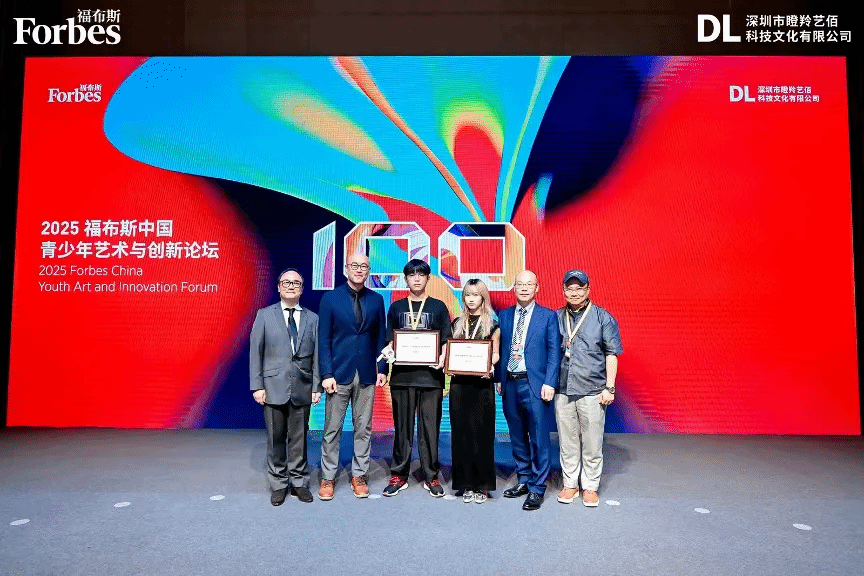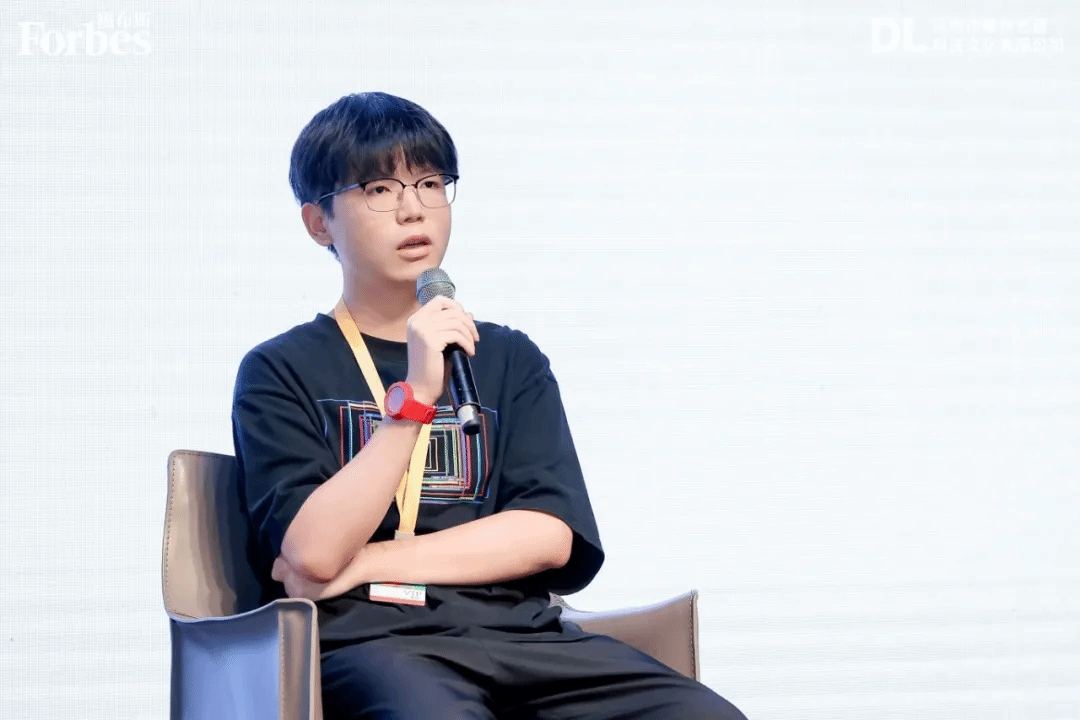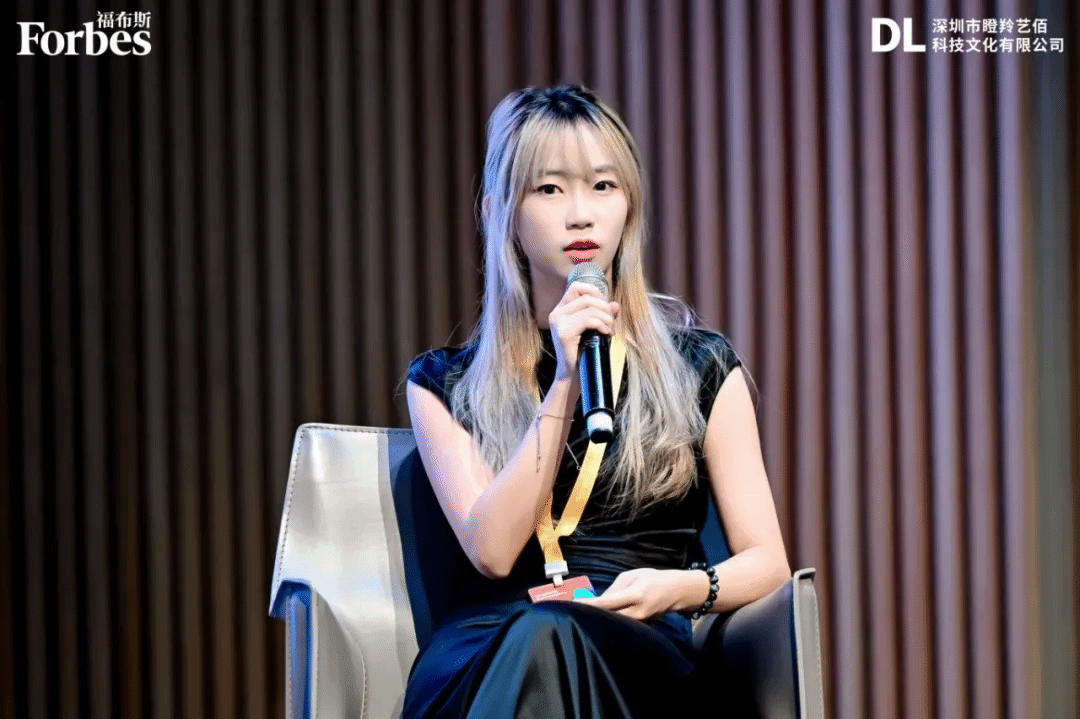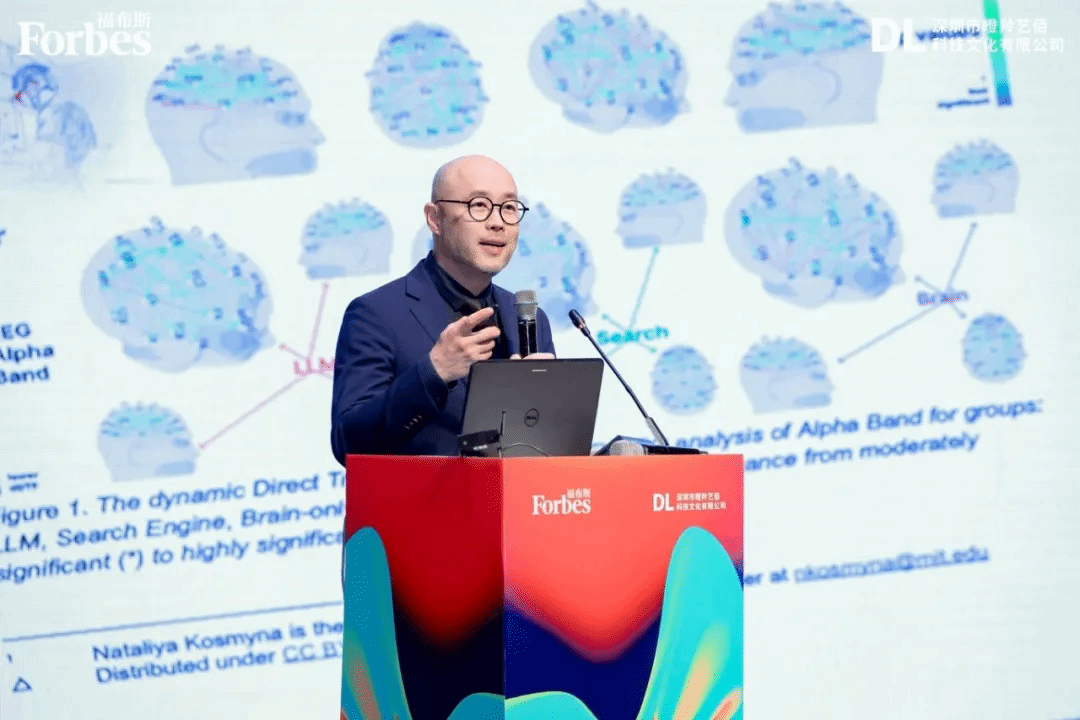Students from Media Arts and Design Programme was selected for the "Forbes 100 Young Artists 2025" list
On 22 August, the “2025 Forbes China Youth Art and Innovation Forum” was grandly held at the Sea World Culture and Arts Centre in Shenzhen. Jointly organised by Forbes China and Gazelle Tech, the forum was themed “Coexistence of Art and Intelligence: A Dialogue between Youth Creativity and AI.” The event aimed to honour the winners of the “2025 Forbes China Top 100 Young Artists Competition” and brought together representatives from leading art institutions and experts in art education to explore pathways for the development of the arts in the era of technology.

From left: Mr. Herman Chik (Chief Revenue Officer of Forbes China Group), Prof. Eugene CH'NG (Dean of the School of Culture and Creativity), Huang Kexuan, Tang Qinglin, Mr. Sun Dasen (CEO of Gazelle Tech), and Dr. Iceman Leung (School of Culture and Creativity).
The “2025 Forbes 100 Young Artists” list aims to discover and recognise outstanding young talents worldwide who have made remarkable achievements in artistic creation, cultural communication, and social innovation. After several months of evaluation, including multiple rounds of expert review and public voting, 100 of the most promising young artists were selected from among hundreds of global candidates.
Huang Kexuan and Tang Qinglin, students of the Media Arts and Design (MAD) Programme at the School of Culture and Creativity, were successfully named to this year’s list in the Digital Art category, with their works Light-Track Symphony and Pareidolia, respectively. In addition, MAD students Song Guoguo and Li Zhiyuan were also recognised as finalists with their excellent submissions.


MAD students Huang Kexuan (top) and Tang Qinglin (bottom) joined the forum’s roundtable dialogue.
Prof. Eugene CH'NG, Dean of the School of Culture and Creativity, delivered a keynote speech entitled “Creativity in the Age of AI: Catalyst or Crutch?” He emphasised that AI-generated ideas are merely variables, while true creativity is far more complex. Future students, he noted, will need to develop interdisciplinary technological skills, domain knowledge, and strong execution in order to harness AI effectively for creative expression. He further stressed that creativity is not simply an outcome but a process—one that must be grounded in professional expertise, enriched by divergent thinking, shaped by socio-cultural influences, and infused with personal cognition and subjective experience.

Prof Eugene CH'NG: “Creativity in the Age of AI: Catalyst or Crutch?”
